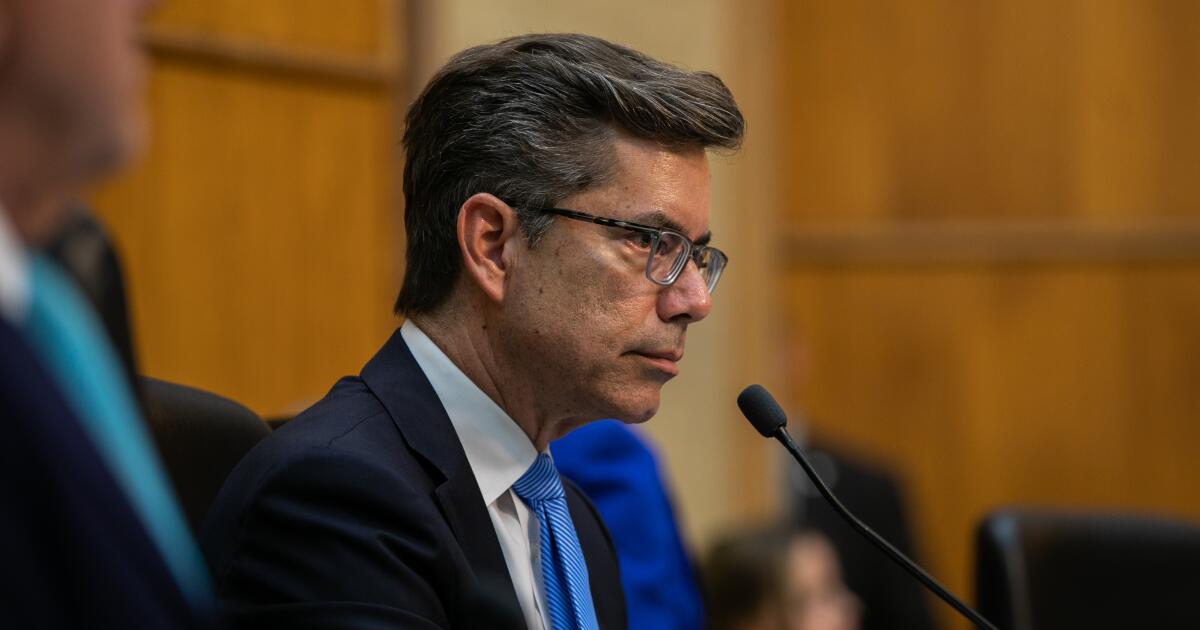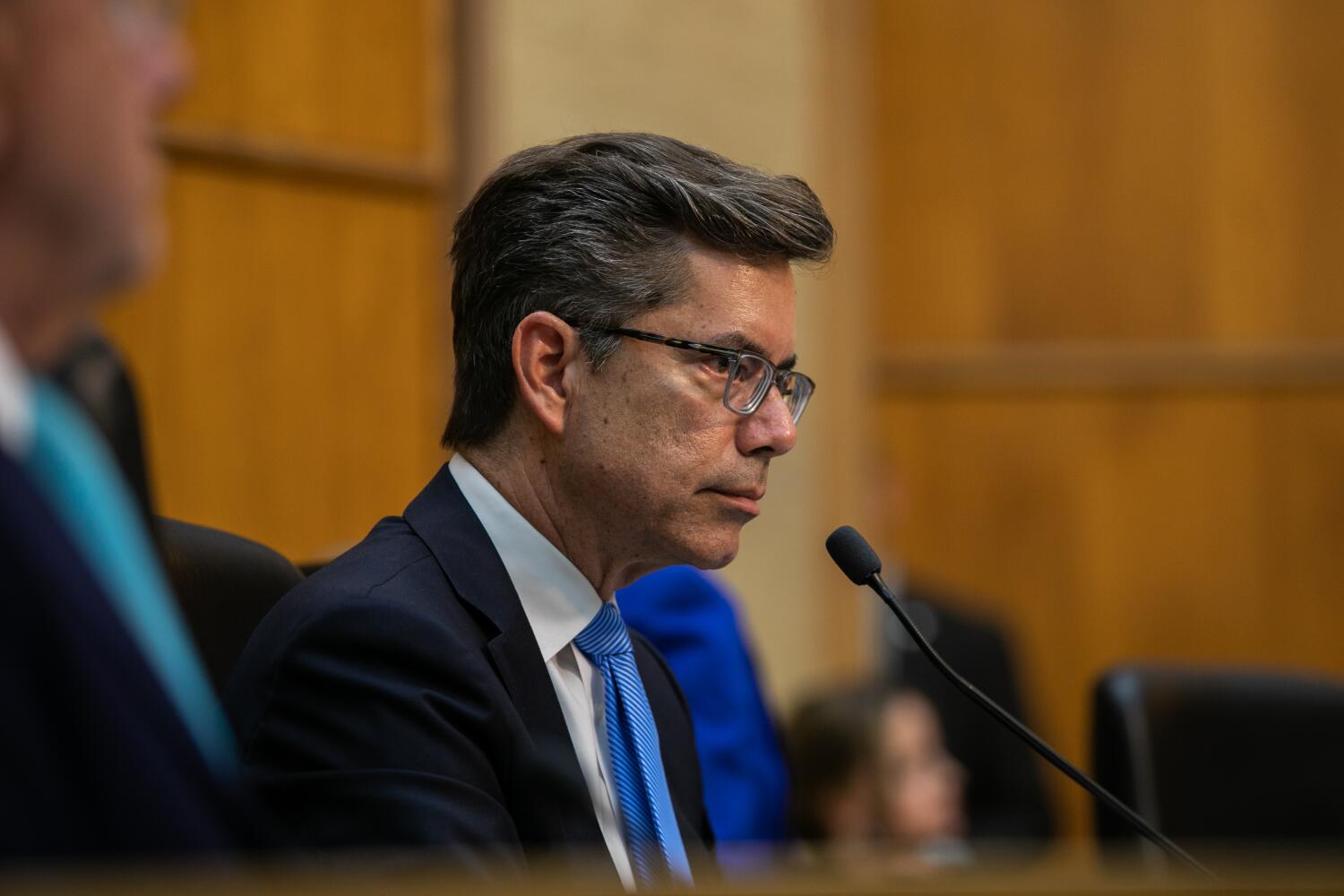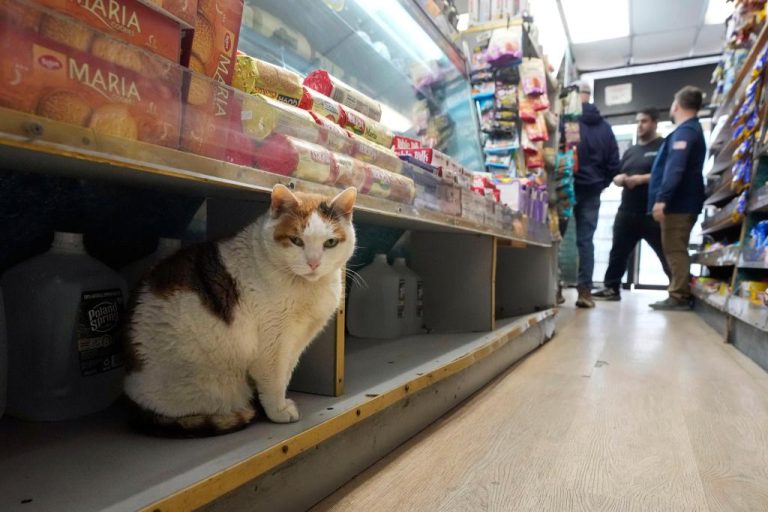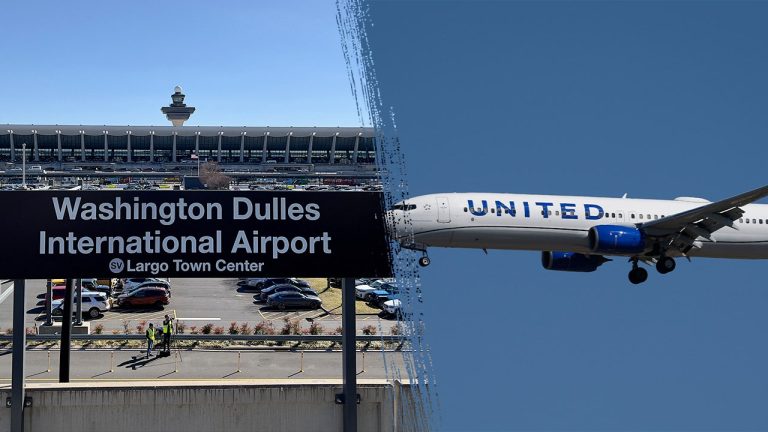

San Diego City Councilmember Stephen Whitburn is seeking a second term representing downtown and the neighborhoods around Balboa Park in District 3.
To help inform voters, the San Diego Union-Tribune asked all the candidates a series of the same questions about their priorities, positions and campaigns. Their emailed answers have been lightly edited for clarity.
Why are you running, and what makes you the best candidate?
It has been an honor serving District 3 residents on the city council. I’m seeking reelection because I have led efforts to reduce homelessness, construct affordable housing and add neighborhood improvements, and I want us to keep moving forward.
To reduce street homelessness, I opened two safe sleeping sites. They have security, restrooms, showers, meals and connections to housing. Over 500 people have moved off the streets and into these sites.
I have led the way on adding truly affordable housing that limits rents to 30 percent of tenants’ incomes. The Helm is now open with 77 units. The Cortez Hill and Harrington Heights apartments are under construction with 358 units combined. Thousands more units are on the way.
In our neighborhoods, I have opened dog parks, added traffic calming, expanded outdoor dining and more. We’re making good progress on several fronts, and I want to keep the momentum going.
What are the top 3 issues facing this district and the city generally?
The issues raised most by my constituents are homelessness, housing affordability and the condition of city infrastructure, from streets to storm drains.
We must continue progress in helping people experiencing homelessness to move off the streets and into shelter and safe sleeping sites. The city will open 1,000 additional shelter beds this year. I also support expanding a program which helps prevent homelessness by providing modest subsidies so struggling residents can pay rent.
In addition to the affordable housing under construction, I have successfully advocated for adding such housing at other sites. The city is soliciting proposals for an affordable complex at the site of the homelessness response center in East Village and is planning to use the site of the old Central Library for affordable housing and shelter.
It’s clear we must also speed up repairs to city infrastructure. I will be prioritizing that in the coming budget discussion.
What are the first 3 things you would do in office if elected?
I will work to add shelters and safe sleeping sites in other parts of the city. Hundreds of people living on our streets have agreed to move to a shelter or safe sleeping site, but these options are often near capacity. Moreover, some parts of the city have no shelters. Beds should be added to accommodate people experiencing homelessness in every part of the city.
Vacant parcels and empty buildings downtown can become blighted. I will pursue incentives to create housing on these parcels. Housing activates an area and creates a more welcoming environment.
As the city identifies additional funding to improve infrastructure, I will ensure District 3 gets its fair share. Mission Valley, East Village and other neighborhoods in the district frequently experience flooding during storms, and infrastructure upgrades in these areas are long overdue.
Do you support a 1-cent city sales tax increase? Why or why not?
Our city has critical infrastructure needs. As residents, we can decide how to address them. Certainly, the city must tighten its belt. Voters can also increase revenues. Some suggest adding a penny to the sales tax to match neighboring cities. That would need voter approval. I would vote for it.
What should the city do to combat its housing crisis? Do you support the city’s controversial Complete Communities developer incentive program?
Too many San Diegans are struggling to pay the rent. We must create many more units of deed-restricted affordable housing where the rent is capped at 30% of the tenant’s income. I have voted to accelerate housing construction by reducing permit processing times and by allowing vacant office buildings to be converted to residential use. Complete Communities incentivizes housing creation near bus and trolley lines, which helps reduce pollution from automobiles.
How should public safety and civil liberties be balanced when it comes to homelessness enforcement, behavioral health policy and police surveillance?
The city reduces the health and safety threat of encampments by prohibiting them on public property. It simultaneously offers people a shelter bed or safe sleeping site that is safer and healthier for them.
Regarding behavioral health policy, our first responsibility is to keep people from harming themselves or others. But we should accomplish this with as few restrictions on an individual’s freedom as possible.
Surveillance technology can help prevent and solve crimes. To protect civil liberties, the city created a Privacy Advisory Board to help ensure that the technology used is appropriate and that there are safeguards against abuse.
Recent flooding has brought new attention to failures of city infrastructure, and how the effects of climate change can disproportionately impact poorer neighborhoods and communities of color. How should the city combat this? And do you support raising the city’s stormwater fee or a similar tax?
The city must urgently address the infrastructure failures which contributed to significant flooding in several areas. The cost to adequately upgrade the infrastructure is in the billions. It has been suggested that raising the city’s stormwater fee could raise the funds necessary. San Diego’s current stormwater fee is a fraction of other cities’ stormwater fees. If a measure to raise the fee is put on the November ballot, it would require voter approval to pass. I believe the need is urgent enough, and the consequence of inadequate action would be severe enough, that personally, I would vote for it.
The city faces a big budget crunch, along with a nearly $5 billion infrastructure funding shortfall. What services should be cut, where should more revenue be sought, and what else should the city do?
To address the funding shortfall, the mayor has directed city departments to propose budgets with two-percent cuts. This is prudent, and I look forward to reviewing the cuts proposed. The city council has asked its independent budget analyst to review city expenditures and identify spending that could be cut without reducing services.
The funding shortfall is another reason it is important that the courts rule swiftly to uphold the passage of Measure C, the voter-approved hotel-tax increase that would generate billions of dollars for the convention center expansion, homelessness services and street paving over the next 40 years.





